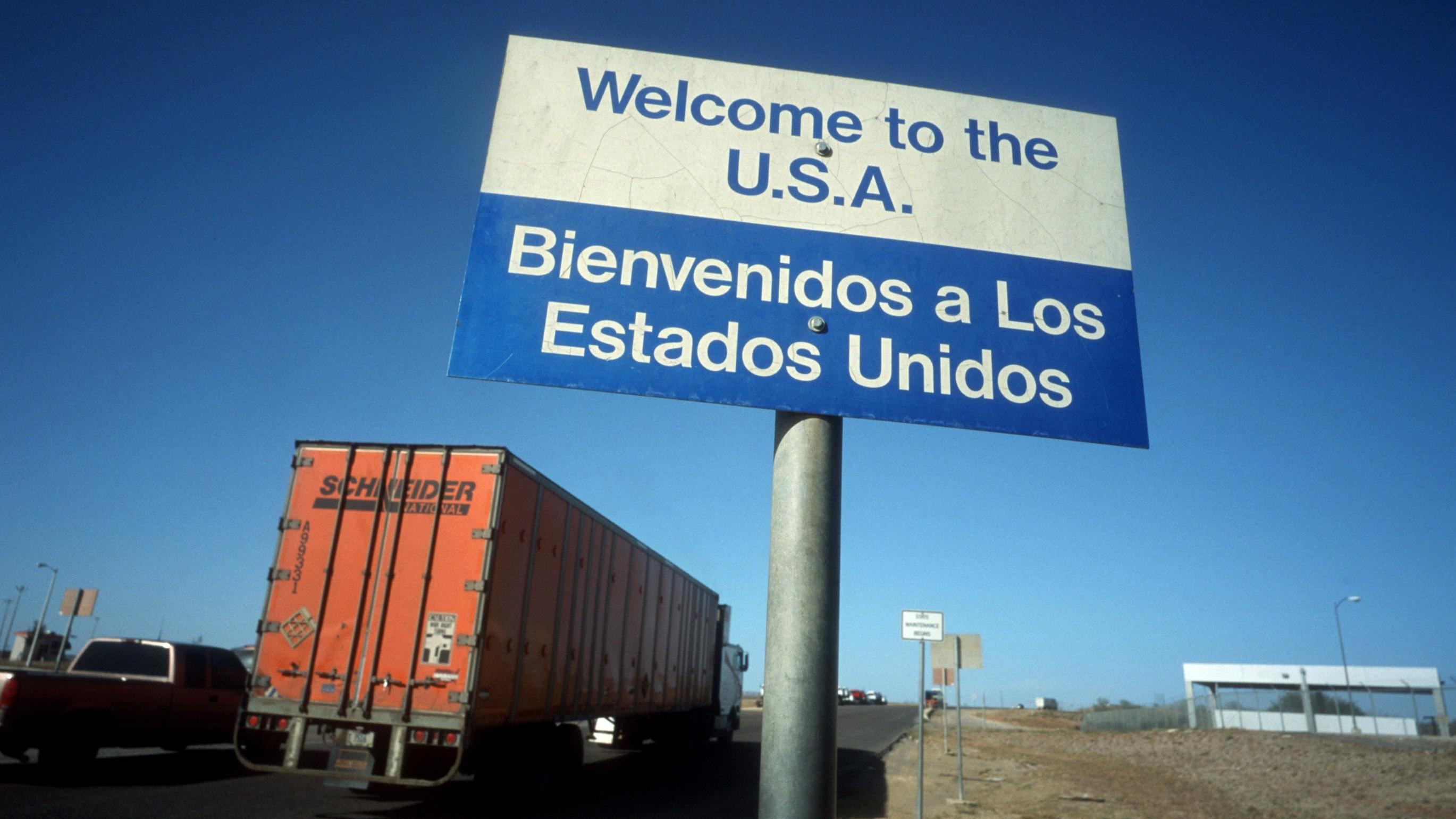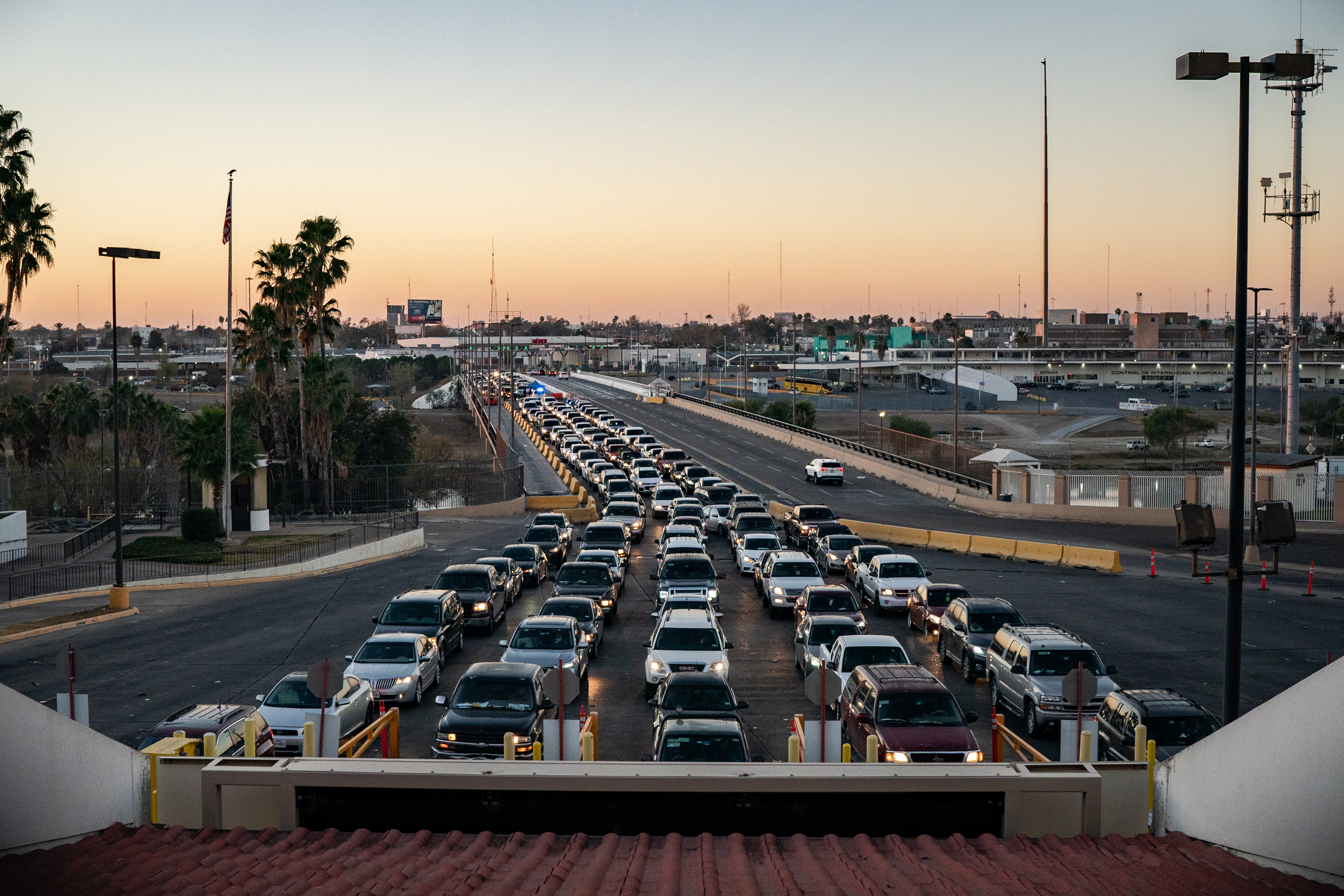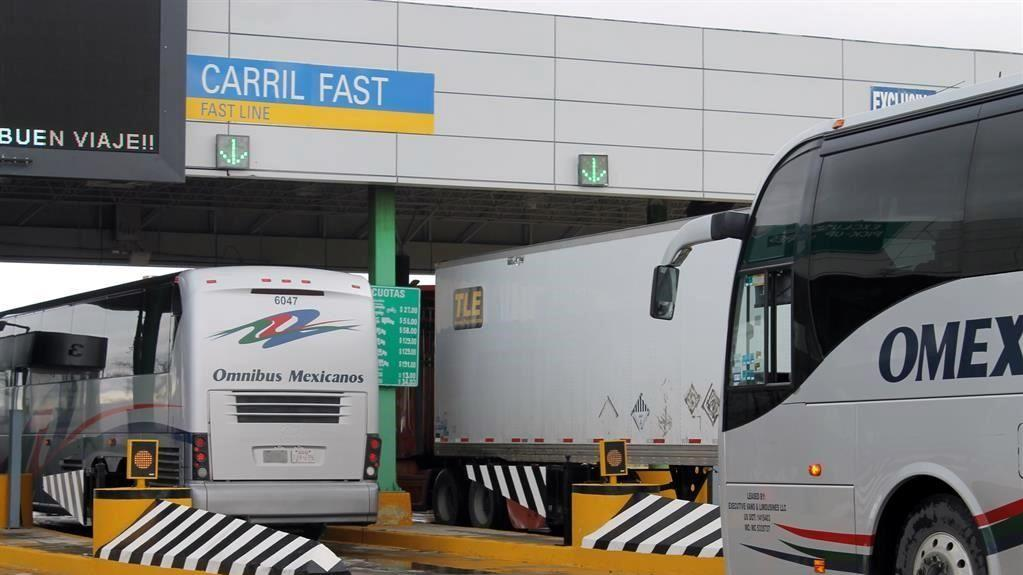Tesla Suppliers Can Skip The Line At The U.S.-Mexico Border
Tesla is getting a private express lane reserved for its suppliers at a Laredo, Texas border crossing.
Tesla suppliers now have a dedicated lane at a U.S.-Mexico border crossing near Laredo, Texas that will let them skip ahead of other cars waiting in line. The lane was given to Elon Musk's EV company by state officials in Nuevo Leon, Mexico, according to Bloomberg. But it's unknown what, if anything, Musk and Tesla paid to ensure suppliers have expedited entry into the U.S. via their own private lane.
The Tesla lane is at the Colombia Solidarity crossing, and you can see it clearly marked in a photo from the Bloomberg report. This crossing overlooks the Rio Grande and connects Laredo, Texas with Colombia, Nuevo Leon. While the border crossing is not alway as busy as others in the area, it's nonetheless an import and export zone where commercial trucks share the bridge with motorists. And possibly also executives, employees, and suppliers of a billionaire's company that are a little too busy to bother with waiting in line.

Nuevo Leon is host to at least six new Tesla suppliers that apparently need quicker entry into the U.S., despite the average crossing time at the border being 20 minutes.
These suppliers mark the growth of the EV industry in the region, which had zero companies catering to the sector before 2021. Officials expect it will only grow now that Musk and Tesla relocated to Texas. The economy minister of Nuevo Leon told Bloomberg it's all about efficiency:
"It was a simple incentive," Rivas said in an interview. "What we want is a crossing that's much more expedited and efficient. And maybe there will be a lane for other companies in the future like there is for Tesla."
The terms of the private lane deal that Tesla struck with the Mexican officials are still undisclosed, and many officials have declined to comment. It's not clear what the rules are or who will administer the lane and its passes — nor is it clear whether the lane will extend to the American side of the crossing.
Most, if not all, international borders are divided into a Mexican and American side. Each of these is overseen by federal authorities, but it's unclear if U.S. officials have given the same privilege to Tesla's suppliers.
Express lanes do exist on the U.S. side, but SENTRI lanes require extensive background checks and cost too much money for most people who cross the border often. Many of them end up waiting for hours, especially at busy seasons (summer months, school holidays). Commercial trucks line up, too, carrying fruits and vegetables bound for the U.S., while American buses ferry passengers to and fro. Hundreds, thousands, of people wait; just not Elon nor his suppliers.

